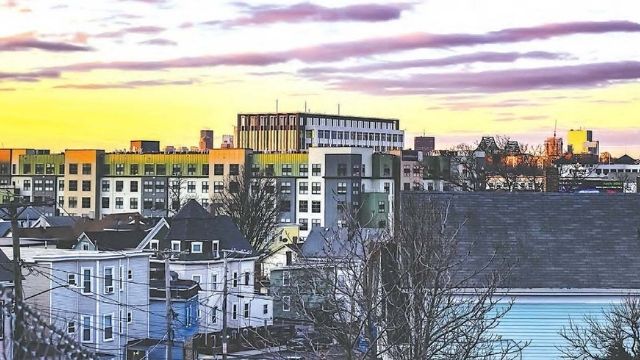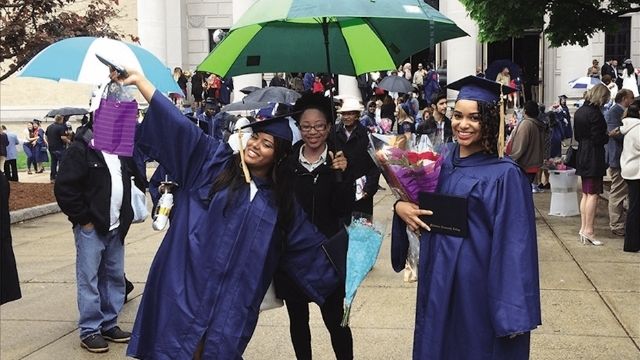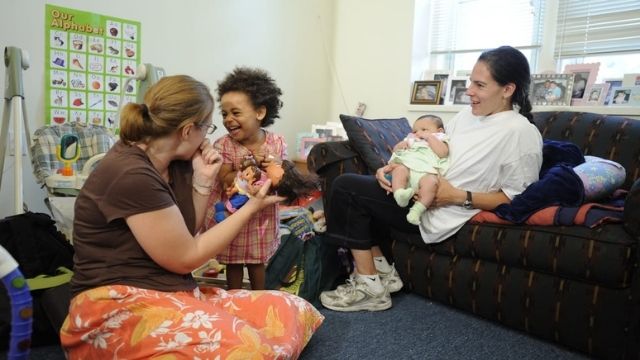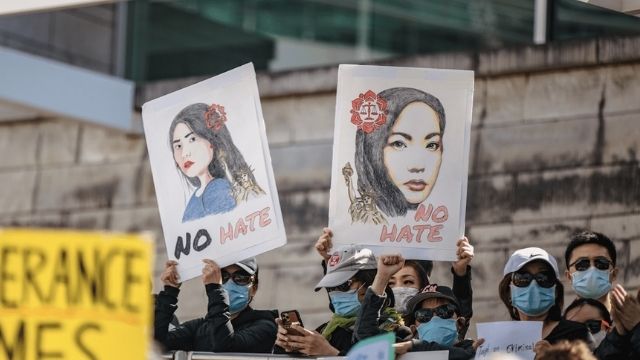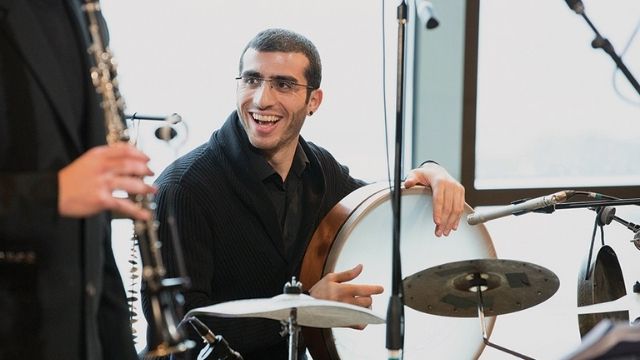

Investing in Change: The Business Equity Fund
Since 2018, the Business Equity Fund (BEF) has been helping businesses of color thrive. The Fund is designed to provide both flexible financing and patient capital to businesses that already are doing well and positioned for growth. To date, seven businesses have received a total of $2.3 million in low-cost loans - and all of them survived COVID. Here, Orlando Watkins, Vice President for Programs at the Boston Foundation, and BEF Investment Committee members discuss the BEF's impact.

A Conversation with M. Lee Pelton, President and CEO
Lee Pelton talks about his career, civic leadership as part of his professional and personal identity and how the Boston Foundation can play a major role in our region's recovery from what he calls the "triple pandemic" of COVID, racism and economic devastation.

Surviving COVID in Mattapan's "Heart of Haiti"
Mattapan has the largest Haitian population in Massachusetts, and more families are arriving every week. Immigrant Family Services Institute (IFSI) works to expedite their successful integration into the social and economic fabric of Boston, with an emphasis on providing academic support and enrichment services to youth. Dr. Geralde Gabeau, Founder and Executive Director of IFSI, explains how IFSI came to be and how their work evolved during the pandemic.

Lightning in a Bottle: A Film Sparks Candid Conversations About Race
Traces of the Trade follows Dain Perry and other descendants of the DeWolf family as they retrace the steps of their ancestors’ slave trading activities. After the film's premiere in 2008, Dain and his wife, Constance Perry, who is African American and a descendant of slaves, decided to devote themselves to this work, and have been leading screenings and conversations about race across the country ever since. Here, they tell us about their work.
Dain and Constance Perry have a donor advised fund at the Boston Foundation.
Featured events:
Explore highlighted recent live and online events hosted by the Foundation and its partners.
The 2021 Greater Boston Housing Report Card - Pandemic Housing Policy: From Progress to Permanence
June 30, 2021
An online forum gathered for the release of the 18th annual Greater Boston Housing Report Card and closed out the Boston Foundation events season on June 30, 2021. A research presentation was followed by a panel discussion of housing and policy experts, each with a unique perspective on lessons learned during this unprecedented time.
Pathways to Economic Mobility: Identifying the Labor Market Value of Community Colleges in Massachusetts
June 10, 2021
A new report from the Boston Foundation and MassINC explores the employment and earnings outcomes of community college students and graduates in Massachusetts, drawing on a new statewide system linking data across high schools, postsecondary institutions and employers. The report presentation was followed by a lively discussion moderated by the Boston Foundation’s Antoniya Marinova among stakeholders in the community college system.
Health Starts at Home: Final Evaluation
June 1, 2021
Our Health Starts at Home initiative supported work that demonstrates the benefits of stable, affordable housing on children’s health out-comes. The release of the final evaluation report marked the culmination of the seven-year initiative, with an assessment of its innovative and significant body of work. Representatives from the four Health Starts at Home partnerships described their work and researchers from Health Resources in Action (HRiA) and Urban Institute shared findings from the Health Starts at Home outcome evaluation.
You can find a full archive of Boston Foundation events, and register for upcoming events by visiting tbf.org/events.
Building AAPI Power: Uniting Against Hate and Mobilizing for Our Shared Future
May 24, 2021
With anti-Asian hate and inequities exacerbated by the COVID-19 pandemic, increased visibility has prompted conversations about how Asian American and Pacific Islander (AAPI) communities can build AAPI-led capabilities to mobilize for lasting change. The Asian Community Fund and the Boston Foundation honored AAPI Heritage Month with a data presentation assessing the current needs of AAPI communities, followed by a panel discussion featuring community leaders who shared how we can meet these needs while building AAPI power.
The Color of the Capital Gap: Increasing Capital Access for Entrepreneurs of Color in Massachusetts
May 20, 2021
Boston Indicators released a report produced in partnership with The Coalition for an Equitable Economy that examines the disparate levels of growth capital available to businesses in Massachusetts and, crucially, proposes actions to be taken to remedy racial disparities. These include increasing access to small business loans; increasing access to equity, grants and alternative financing structures; regulating the small business financing sector; and increasing the representation of people of color in capital allocation roles.
Boston Opportunity Agenda: Annual Report Card
May 19, 2021
The COVID pandemic has given us an opportunity to reimagine education in Boston. With the release of the ninth annual BOA Report Card, experts discussed data trends across our cradle-to-career systems in Boston and explored what data on student outcomes will be available in the near future to guide our recovery efforts. Community leaders shared new ways that we can work together to advance equity and a just education ecosystem in Boston.
There at the Beginning: Live Arts Boston
In 2017, the Boston Foundation came together with Barr Foundation to launch Live Arts Boston with the goal of lifting up the work of performing artists of color and immigrant artists—and to strengthen arts equity in Boston. More than $4 million in funding has made it possible for recipients to provide millions more dollars in direct payments to artists working on their projects—and over 70 percent of all artists who have received grants are of color. On June 25, Live Arts Boston awarded nearly $1 million in grants to 65 artists, groups and small organizations to create, produce and present new performing works. Go to tbf.org/lab for more about Live Arts Boston. The Boston Foundation has been There at the Beginning with critical early funding for more than 100 great ideas and new nonprofits.

